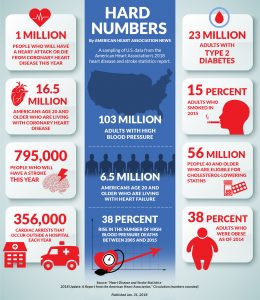
Credit: https://www.telegraph.co.uk/content/dam/health-fitness/2017/06/06/TELEMMGLPICT000036788848_trans_NvBQzQNjv4BqpUuFqFMsEKHgfH2-ULHMxVBjcxPPjt_KRLg4Xs2XGNw.jpeg?imwidth=1400
The heart wants what it wants. But it’s not late night eating.
A new study lead by Nour Makarem, a postdoctoral fellow in cardiology at Columbia University found that light night meals take a toll on general health.
The researchers presented their findings at the American Heart Association’s Scientific Sessions annual meeting explaining that eating more at night (late evenings) is associated with an increased risk of heart disease.
According to the lead author, Makarem, People in Canada and the U.S have “delayed lifestyles,” meaning that they go to sleep later at night and get fewer hours of sleep. With this delayed lifestyle, higher rates of late-night eating are seen said Makarem.
Another study conducted at the Perellman School of Medicine at UPenn found that when participants ate later at night not only did their weight increase, but so did their levels of insulin, glucose and cholesterol. Consequently, this can increase the risk of heart disease or the suffering of a heart attack and the risk of getting type 2 diabetes.
Youtube: https://www.youtube.com/watch?v=RHvVbvEdKWc
“Eating later can promote a negative profile of weight, energy and hormone markers,” said lead researcher Namni Goel. Combining Makarem and Goel’s findings alongside others, these are the four reasons in addition to heart disease for why late night snacking should be avoided.
It increases the risk of a heart attack
Makarem and Goel, conclusively, discovered that eating dinner after 7pm could increase the risk of suffering a heart attack. They both found that eating dinner late at night had the most significant impact on overnight blood pressure while eating with two hours of going to sleep did more damage than indulging in a high salt content diet.
24.2 per cent of those who ate dinner within two hours of going bed suffered from high blood pressure which did not drop sufficiently overnight, compared with 14.2 per cent of those who ate their evening meal earlier.
It can affect your memory
A study from the University of California found that eating at late night negatively impacts cognitive functions – particularly memory. They fed one group of mice during the day and the other group later at night. The mice that were fed at night showed a lesser ability to recognize new objects and decreased abilities to create long-term memories.
It makes you have weird dreams
Two Canadian psychologists surveyed 400 university students about sleep patterns, dreaming and late night diet. They found that among 18 percent of participants that eating late at night was to blame for confusing dreams. This can occur as late night snacking can often lead to gastrointestinal discomfort which disrupts sleep patterns.
It creates acid reflux
According to experts, eating late at night (especially heavy foods) and going to sleep shortly after is a key contributor to acid reflux. This occurs because the stomach takes a few hours to empty after a meal, so sleeping shortly after allows for the acid to spill out of the full stomach into the esophagus which causes acid reflux.
Written By: Parwaz Brar of Scie 300 109

